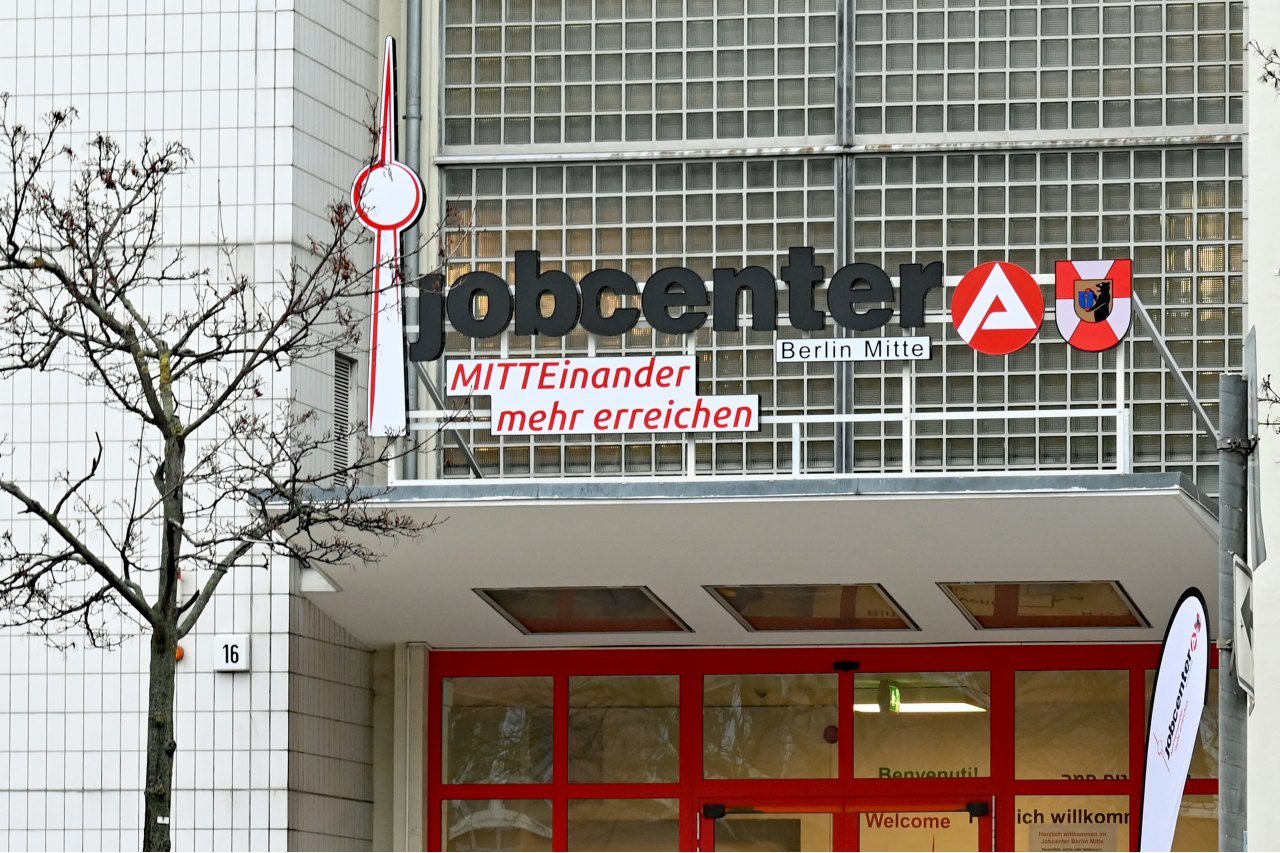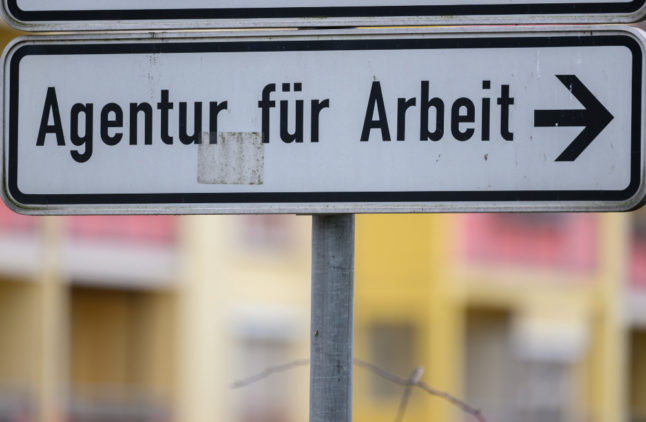If you lost your job – or walk away yourself – there are a few steps to take to ensure that you receive financial support during your unemployment.
How to register
To receive relief when you are unemployed, you must register at the Federal Employment Agency. Once your case is reviewed to ensure you are eligible you can begin receiving unemployment benefits.
You must visit the Federal Employment Agency (BA, or Bundesagentur für Arbeit) in person or online at the earliest three months before your employment ends.
READ ALSO: What happens to your residency permit if you lose your job in Germany?
If your employer does not provide you with advance notice of your contract termination, then you need to visit the Agency three days after you know of your unemployment. You do not need an appointment.
There are strict protections against unlawful termination of employment, but not all employers are aware of the rules. If you find yourself unlawfully terminated you may be entitled to a severance payment.
If you register too late you could receive a Sperrzeit, or disqualification period which would decrease your unemployment benefits.
Is unemployment available after quitting your job?
Yes, but you may have to wait for those benefits to kick in. For individuals who resign to find employment elsewhere and need unemployment benefits while looking for their next step, you can also visit the Federal Employment Agency in person or online at the earliest three months before your employment ends.
The BA will require you to wait three months after your notice period before you can receive benefits, so it is advantageous to schedule an appointment before you leave the job.
This period can be waived if you can show that your job took a toll on your health (with a doctor’s note), your new employment contract was canceled, and / or you can prove you resigned without notice because of employer misconduct like not receiving pay.
What unemployment benefits are available?
There are two types of unemployment benefits available in Germany.
- Unemployment Benefit 1 is an insurance-based benefit available if you contributed to the unemployment insurance system during your employment. You will receive benefits according to your contributions to the system while employed.
- Unemployment Benefit 2 or Bürgergeld is a benefit for individuals and families facing financial hardship because of unemployment or low income. This benefit is funded by federal taxes.
READ ALSO: Bürgergeld: Germany’s monthly unemployment benefit to rise by 12 percent

Eligibility for unemployment
Regardless of which unemployment benefit you are eligible for, you must be a legal resident of Germany, registered as unemployed, actively looking for a job, and between the ages of 15 and 65.
To be eligible for Unemployment Benefit 1, you must have been employed and contributed to the unemployment insurance system for at least 12 months in the past two years before becoming unemployed.
You may also be eligible for this benefit if you raised a child until the age of three, received sick pay, voluntarily signed up for unemployment insurance while freelancing, or completed voluntary military service, federal volunteering or youth service.
To be eligible for Unemployment Benefit 2, expats who are facing financial hardship must meet the means test criteria set by the job centre. Foreigners must also fulfill at least one of the following scenarios:
- Registered resident in Germany for at least 5 years
- Previously received Unemployment Benefit 1, but benefits ran out
- Worked in Germany for three of the last six months, and are not entitled to unemployment benefit 1
What is covered by unemployment benefits?
Unemployment Benefit 1 is based on previous earnings so it partially covers living expenses and housing. Recipients will also remain covered by health insurance.
Unemployment Benefit 2 covers essential living expenses including food, clothing,
It covers rent and heating costs up to the rate set by each state and recipients receive
Both categories can receive job-seeking assistance, free professional training and counseling to improve job opportunities.
How much money will I get?
Recipients of unemployment benefit 1 can expect to receive 60 percent of their gross income, or 67 percent if they have children. It is important to note that the money you receive is taxable. Germany also ignores gross income above €90,600 when deciding benefits.
Bürgergeld recipients can expect up to €563 per month along with the payment of other living expenses and housing. Local authorities set rates for “reasonable” accommodation costs based on the region’s cost of living. Check with your local ‘jobcentre’ to determine what the allotment will be.

How long do unemployment benefits last?
For those receiving Unemployment Benefit 1, assistance typically lasts between 6 to 12 months. If you are over 50, the benefits can last up to 2 years. Still, you could receive less unemployment benefits if you face a Sperrzeit or assistance disqualification period.
Changes proposed to Germany’s system
And Germany’s unemployment system may face another shakeup.
That’s because the CDU proposed several changes to Bürgergeld, Germany’s long-term unemployment benefit. The center right party said in a statement it wants to “abolish it in its current form” and rename the program to “Neue Grundsicherung” or New Basic Security.
What are the proposed changes?
Under the current proposal, stricter sanctions would be established to reduce benefits if appointments at the jobcentre are missed with no excuse or recipients refuse employment.
The CDU resolution also intends to prevent Totalverweigerer (complete refusers), unemployment recipients who are able to work but refuse to do so, from receiving any benefits.
Germany’s Constitutional Court decided in 2019 that a 100 percent cut was not constitutional. But the country’s highest court found that a 30 percent cut in benefits could be permissible but anything higher than 60 percent was unreasonable. It is unclear how the CDU plans to clear this hurdle when implementing the plan. But for “total refusers” it may be permissible to fully cut benefits.
The SPD and the Green party rejected the CDU initiative. SPD leader Lars Klinbeil rejected the plan in a statement to Tagesschau.
“The amount of citizens’ money is determined by a constitutional court decision. This has now been implemented, with the consent of the Union, by the way,” he said. “We need to have other debates than attacks on the welfare state.”
The federal and state governments also met to discuss potential changes to refugee policy.
New Ukrainian refugees may also no longer receive Bürgergeld, instead the group will receive monetary assistance through the Asylum Seekers’ Benefits Act, according to a recent CSU proposal.
Under this proposal a single asylum seeker would be entitled to a maximum of €460 in monthly assistance through the Asylum Seekers’ Benefit. This represents a slight decline from the €563 Ukrainian refugees could receive previously through Bürgergeld.
In 2023, nearly 6 million people received Bürgergeld benefits. There is no national data on how many benefit recipients fall under the “complete refuser” category.



 Please whitelist us to continue reading.
Please whitelist us to continue reading.
Member comments